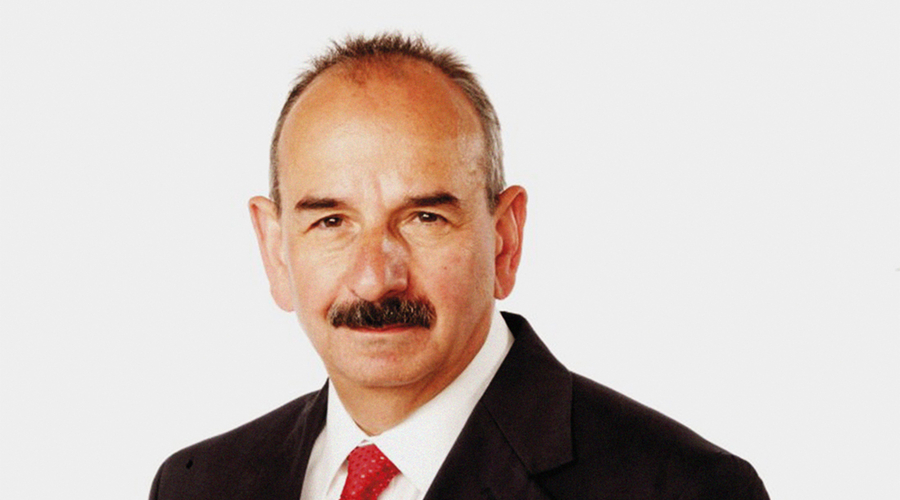Simon Bucks on keeping morale high in the UK’s armed forces and how the RTS’s journalism awards are evolving.
Whisper it, but wars are good for business at BFBS. Our job as a charity is to provide entertainment and information to the military, especially those overseas. Although (officially) there are no UK boots on the ground in Ukraine, there are now several thousand nearby on Nato’s eastern flank, bordering Russia, and more on their way.
Thanks to the generosity of the broadcasters and rights owners, we give them great TV plus radio, e-newspapers and magazines.
A key device is the MiPlayer, developed in-house. It cleverly converts satellite signals to live streams and catch-up delivered to the forces’ own phones, tablets, laptops and smart TVs. It’s an internet-connected experience without the internet, and an amazing morale booster.
A sad phone call to tell me Sir David Nicholas, the great ITN editor, has died, aged 92. He was a remarkable innovator, and television journalism owes him a colossal debt. His proudest achievement was the creation of News at Ten: for many years not just an appointment to view but a household brand.
David was also a mentor to many of us. He once rang me after an especially challenging News at Ten and said in his quiet Welsh lilt: “I’ll never bollock you for something you’ve done – only for something you haven’t done.” It was a good lesson: risk aversion doesn’t make for great TV.
David always put the news ahead of the money, resulting in regular rows with his ITV paymasters. Eventually, the harsh economic realities of commercial television were too much, and he wisely quit while he was ahead.
As a CEO, you rarely get a credit on a TV programme, so I was chuffed to executive produce a fascinating documentary, written and presented by Stewart Purvis, another former (and top) ITN boss. It’s a remarkable account of a “psychological operations” Spanish-language radio station set up by the Ministry of Defence during the Falklands conflict to demoralise the Argentinians. My Secret Falklands War is on our Forces News YouTube channel.
Stewart spent eight years chasing down the story, and his enthusiasm for a gripping yarn is undimmed even after half a century in the business.
The RTS Television Journalism Awards, which I chair, are undoubtedly the gold-standard of high quality. But it’s vital to give them a regular health check, so, with the help of RTS colleagues and the neutral chairs, we have overhauled the criteria to keep them relevant.
Online video journalism in all its forms is now cemented into the awards, and I hope that will attract more new and diverse entrants.
Another change is the introduction of a gong for political journalism. It’s long overdue: political news routinely dominates the agenda, but the correspondents tend to be edged out of awards by the frontline warriors. Now is their chance.
Exciting times at the BFBS Academy, where we train ex-forces people for new civilian jobs in the media. Our latest venture is a course in production management. It’s the ultimate win-win: there is a serious dearth of production managers and production co-ordinators in TV and film.
People who have served in the military have many of the skills and qualities for the job: they are good at logistics, they are organised and resourceful, and work well in teams.
Our friends across the industry have helped develop the syllabus; the first trainees start in September and will be on the jobs market early next year.
For more than a decade, I campaigned, alongside colleagues from across the industry, to televise trials.
The courts are a cornerstone of democracy, helping shape society, we argued, so the public had a right to see their workings on video.
In 2020, the Government announced a small step: the televising of judges’ sentencing remarks in Crown courts – but the glacial progress of change in the judiciary means we are still waiting for it to happen.
In truth, this was always going to be a slow-burn revolution. It took 10 years to persuade the authorities to allow cameras into the Court of Appeal, plus nearly the same again to achieve this further, modest concession. So, I don’t expect the full Rumpole in my lifetime, or possibly ever.
Simon Bucks is Chief Executive of BFBS.






